Becoming a Certified Bookkeeper in Canada
Your Ultimate Guide to Success
1/16/20257 min read


Becoming a Certified Bookkeeper in Canada opens doors to a rewarding and high-demand career in the financial sector. Aspiring bookkeepers seeking success in the Canadian landscape need a comprehensive roadmap to navigate the certification process effectively. From understanding the educational requirements to mastering key skills, this ultimate guide equips you with all the necessary tools to achieve your professional goals.
Embark on this transformative journey towards becoming a certified bookkeeper in Canada as we unravel the intricacies of the certification process and offer invaluable insights into the thriving field of bookkeeping. Stay ahead of the curve with insider tips, expert advice, and a step-by-step breakdown of the certification process, ensuring you are well-prepared to excel in this dynamic industry. Whether you're just starting or looking to elevate your career, this guide is your blueprint to success as a certified bookkeeper in Canada.
Importance of Becoming a Certified Bookkeeper
Becoming a certified bookkeeper is a significant career milestone that offers multiple benefits. In a rapidly evolving financial landscape, certification distinguishes qualified professionals from those who lack formal credentials. This distinction is not merely a title; it reflects a commitment to mastering essential skills and adhering to industry standards. Employers are increasingly seeking certified bookkeepers as they provide assurance of expertise and reliability, making them more competitive in the job market.
Moreover, certification opens doors to various opportunities within the financial sector. Certified bookkeepers can work in diverse environments, including corporations, small businesses, and freelance settings. This flexibility allows individuals to choose a work style that suits their lifestyle and personal preferences. Additionally, certified bookkeepers often enjoy higher earning potential compared to their non-certified counterparts, making the investment in certification worthwhile.
Furthermore, the process of becoming certified enhances your knowledge and skills, preparing you for real-world challenges in bookkeeping. The curriculum covered in certification programs often includes advanced topics such as tax regulations, financial reporting, and software proficiency. This comprehensive education equips aspiring bookkeepers with the tools and confidence necessary to excel in their roles, thereby contributing to their overall job satisfaction and career longevity.
Steps to Becoming a Certified Bookkeeper in Canada
Transitioning into the role of a certified bookkeeper involves several well-defined steps. The journey typically begins with gaining foundational knowledge in accounting and finance, which can be accomplished through formal education or self-study. Many individuals start by completing courses in bookkeeping or accounting at community colleges or online platforms. These courses provide a solid understanding of financial principles, bookkeeping practices, and the relevant software tools used in the industry.
Once you have acquired the necessary knowledge, the next step is to select an appropriate certification program. Canada offers various certification options, including those from recognized organizations such as the Canadian Institute of Bookkeeping (CIB) and the Association of Certified Bookkeepers (ACB). It is essential to research these programs thoroughly and consider factors such as curriculum, accreditation, and industry recognition. Choosing the right program is critical to ensuring that you receive the education and training needed to succeed.
After selecting a program, you will need to complete the required coursework and practical training, which may include internships or hands-on projects. This practical experience is invaluable as it allows you to apply theoretical knowledge in real-world situations. Following the completion of your training, you can then proceed to register for the certification exam. It is vital to prepare adequately for this exam, as it will assess your understanding of key concepts and your ability to perform essential bookkeeping tasks.
Eligibility Requirements for Certification
To become a certified bookkeeper in Canada, certain eligibility requirements must be met. While specific prerequisites can vary depending on the certification body you choose, a common requirement is the completion of a relevant educational program. Most certification programs expect candidates to have a background in accounting or bookkeeping, which can be achieved through formal education or equivalent work experience.
In addition to educational qualifications, many certification programs require candidates to demonstrate a certain level of practical experience in bookkeeping. This experience can often be obtained through internships, part-time work, or volunteer positions in financial roles. The necessary duration of practical experience may vary, but the goal is to ensure that candidates are familiar with day-to-day bookkeeping tasks and financial processes.
Furthermore, candidates must also be prepared to meet any additional criteria set by the certification body. This may include submitting an application, providing references, or passing an initial assessment. Understanding these requirements early in the process will enable you to plan your path towards certification effectively and ensure you meet all necessary standards before applying for the exam.
Choosing the Right Bookkeeping Certification Program
Selecting the right bookkeeping certification program is a crucial step in your journey to becoming a certified bookkeeper. With various options available, it’s important to carefully evaluate each program based on your career goals, learning preferences, and financial situation. Begin by researching reputable certification bodies in Canada, such as the Canadian Institute of Bookkeeping (CIB) or the Association of Certified Bookkeepers (ACB). Each organization has different accreditation standards and curricula that cater to various professional needs.
Additionally, consider the format of the courses offered by the certification programs. Some programs are available entirely online, while others may require in-person attendance or blended learning. If you have a busy schedule or prefer self-paced learning, an online program might be the best fit. On the other hand, if you thrive in a structured classroom environment with direct interaction with instructors, an in-person program may be more beneficial.
Another factor to weigh is the cost of certification programs. Tuition fees can vary widely, so it’s essential to assess your budget and explore any financial aid options available. Furthermore, look into the program’s reputation and success rates. Reviews and testimonials from past students can provide valuable insights into the quality of education and support offered by the program, helping you make an informed decision.
Studying for the Certification Exam
Preparing for the bookkeeping certification exam requires a strategic approach to studying that encompasses both theoretical knowledge and practical applications. Start by reviewing the exam syllabus to understand the key topics covered, such as accounting principles, financial reporting, and tax regulations. This will help you create a focused study plan that prioritizes areas where you need more practice or understanding.
Utilizing study materials and resources provided by your certification program is essential. Many programs offer textbooks, online modules, and practice exams to help candidates prepare effectively. Additionally, consider joining study groups or online forums where you can interact with fellow candidates. Engaging with peers can enhance your learning experience, as discussing concepts and sharing resources often leads to a deeper understanding of the material.
Incorporating various study techniques can also improve retention and comprehension. For instance, using flashcards for key terms, taking practice quizzes, and teaching concepts to others can reinforce your knowledge. Allocate dedicated study time in your schedule, and stay disciplined in your approach. Lastly, make sure to take breaks and manage stress, as maintaining a healthy balance is crucial during this intensive preparation phase.
Tips for Passing the Bookkeeping Certification Exam
Successfully passing the bookkeeping certification exam requires more than just knowledge; it involves effective test-taking strategies and a solid understanding of how to manage your time during the exam. Begin by familiarizing yourself with the exam format, including the types of questions you may encounter, such as multiple-choice, short answer, and practical scenarios. Knowing what to expect will reduce anxiety and help you feel more prepared on exam day.
Time management is another critical aspect of exam success. During practice exams, pay attention to how long you take to answer each question. This will help you gauge your pace and develop a strategy for the actual exam. If a question seems particularly challenging, it may be more efficient to move on and return to it later, ensuring that you allocate time to complete all sections of the exam.
Additionally, practice is key to reinforcing your knowledge and skills. Utilize any available mock exams or practice questions from your certification program to simulate the testing experience. This will not only help you become familiar with the types of questions you’ll face but also identify areas where you may need further review. Lastly, on the day of the exam, ensure that you are well-rested, arrive early, and approach the exam with confidence, knowing that you have adequately prepared.
Job Opportunities for Certified Bookkeepers in Canada
The job market for certified bookkeepers in Canada is robust and continues to grow as businesses increasingly recognize the importance of accurate financial management. Certified bookkeepers have a wealth of opportunities available to them, ranging from positions in corporate finance departments to roles in smaller businesses and non-profit organizations. Additionally, many certified bookkeepers choose to work as independent contractors or freelancers, allowing them the flexibility to manage their own schedules and client bases.
In corporate settings, certified bookkeepers often take on roles such as financial analysts, payroll specialists, or accounts receivable/payable clerks. These positions typically come with competitive salaries and benefits, making them attractive options for individuals seeking stability and career advancement. The demand for skilled bookkeepers means that opportunities are consistently available across various industries, including retail, healthcare, and technology.
Furthermore, as businesses continue to adopt new technologies and accounting software, the skillset of certified bookkeepers is evolving. Familiarity with accounting software such as QuickBooks, Sage, and Xero is increasingly sought after, providing additional opportunities for specialization. By staying current with industry trends and expanding their skills, certified bookkeepers can enhance their employability and position themselves for leadership roles within their organizations.
Continuing Education and Professional Development for Certified Bookkeepers
Once you become a certified bookkeeper, your journey does not end there. The financial sector is dynamic, with constant changes in regulations, technologies, and best practices. To stay relevant and competitive in the field, engaging in continuing education and professional development is essential. Many certification bodies require certified bookkeepers to complete a certain number of professional development hours annually to maintain their certification.
Continuing education can take many forms, including workshops, seminars, webinars, and online courses. Topics may range from advanced accounting techniques to new software tools and regulatory changes. Participating in these learning opportunities not only helps you stay informed but also expands your network of professionals within the industry, which can lead to potential job opportunities and collaborations.
Additionally, many certified bookkeepers find value in pursuing further certifications or specializations, such as tax preparation, forensic accounting, or financial planning. These additional credentials can significantly enhance your skills and marketability, allowing you to take on more complex roles within the industry. By committing to lifelong learning, you reinforce your expertise and demonstrate your dedication to your profession, ultimately paving the way for ongoing career success.
Conclusion: Your Path to Success as a Certified Bookkeeper in Canada
Embarking on the journey to become a certified bookkeeper in Canada is a rewarding endeavor that offers numerous opportunities for professional growth and advancement. By understanding the importance of certification, following a clear set of steps, and equipping yourself with the necessary skills and knowledge, you position yourself for success in a thriving field.
As you navigate the certification process, remember to choose the right program, prepare diligently for the exam, and embrace the continuous learning essential for remaining competitive in the job market. The career of a certified bookkeeper is not only about numbers; it's about making a significant impact on businesses and helping them achieve their financial goals.
With determination and commitment, you can establish a fulfilling career as a certified bookkeeper in Canada. The skills you acquire and the connections you make throughout this journey will serve as a solid foundation for a successful and enriching professional life. Take the first step today, and unlock the doors to a promising future in the world of bookkeeping.
Services
Support
© 2024. Hexa Bookkeeping


Navigation
About Us
Pricing
Contact Us
